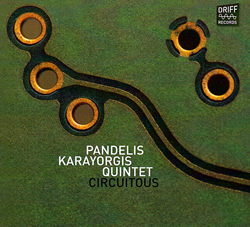
Some of Chicago's top improvisers in a set of new compositions by pianist Karayorgis, featuring reed players Rempis and Jackson in various powerful sax and clarinet combinations.
In Stock
Quantity in Basket: None
Log In to use our Wish List
Shipping Weight: 3.00 units
EU & UK Customers:
Discogs.com can handle your VAT payments
So please order through Discogs
Sample The Album:
Dave Rempis-tenor saxophone, alto saxophone, baritone saxophone
Keefe Jackson-tenor saxophone, bass clarinet, contrabass clarinet
Pandelis Karayorgis-piano
Nate McBride-bass
Frank Rosaly-drums
Click an artist name above to see in-stock items for that artist.
UPC: 616892136545
Label: Driff Records
Catalog ID: 1304
Squidco Product Code: 17833
Format: CD
Condition: New
Released: 2013
Country: USA
Packaging: Cardstock gatefold foldover, unsealed
Recorded at Chicago Public Media's Jim & Kay Performance Studio by Mary Gaffney on January 16th, 2012.
"The title Circuitous goes to the heart of Pandelis Karayorgis's creative process, the cycling back, the moving forward, the presence of patterns and the embrace of their opposite, the sense of the road less taken. You feel the pressure of origins, but also a sudden spinning outward, a looping toward new meanings. Karayorgis is a radical conservative, radical in the sense that he has looked with a special intensity at the roots of the music that he plays, conservative in that he maintains a relationship to what is most vital in the tradition. His music seems to proceed from a fundamental question, "How does one make meaningful work?"
Listening to Karayorgis's music, we hear a fundamental rethinking of modern jazz-bop--and its original impact. We're conditioned to listen to a conventional jazz performance through its mechanics, as a theme and set of variations, the theme often there only as something to be varied, the emphasis clearly on the soloist, that function enshrined in the chain that regularly concludes with a drum solo, the ultimate erasure of harmonic and melodic. But the great jazz composers and many of the great jazz bands clearly approached a work as something else, a gestalt, a work of interlocking parts, some fixed, some variable, some radically extensible, all liable to form new relationships and meanings. The work's total form had primacy over individual solos.
Listen to Thelonious Monk's early recordings and they were already great before he had great soloists and before the musicians had time to stretch out. Working with the limited palette of a small group and theme-and-variation patterns, Monk's music represented-even created-complex psychological states which have resonated ever since. The same is true of others in Monk's circle-Bud Powell, Elmo Hope, Herbie Nichols-and some outside, like Lennie Tristano and Hassan ibn Ali.
Pandelis Karayorgis develops the same thing here: in a brilliant revisioning of the modern jazz tradition, he constructs complex fields in which a listener is engaged in the play of puzzle, form and dialogue, and Karayorgis does it with an intensity and urgency that insist this is meaningful-even crucial--activity. [...]"-Stuart Broomer, from the liner notes
Artist Biographies
• Show Bio for Dave Rempis "Dave Rempis was born in Wellesley, Massachusetts on March 24th, 1975. He began his musical studies at the age of 8, inspired by a family friend who played clarinet in local Greek bands, and by Zoot, of the Muppets Band, to pick up saxophone. During high school he performed in his town, district, and all-state bands and wind ensembles, as well as in a jazz combo at a local music school. In 1993, Rempis began a degree in classical saxophone at Northwestern University with Frederick Hemke. Finding this environment stifling, Rempis quickly ditched the music degree to pursue studies in anthropology and ethnomusicology. As part of these studies, he spent a year at the International Centre for African Music and Dance at the University of Ghana, Legon, studying African music and ethnomusicology. He also continued to perform with many different types of groups, ranging from highlife and reggae bands while in Ghana, to jazz, free jazz, funk, and contemporary music ensembles at home. He graduated from Northwestern in 1997. Upon graduating, Rempis decided to focus on performing, and in March of 1998 at the age of 22 was asked to replace veteran saxophonist Mars Williams in the well-known Chicago jazz outfit The Vandermark Five. This opportunity catapulted him to notoriety as he began to tour regularly throughout the US and Europe playing clubs, concert halls, and festivals on both continents. During his tenure with The Vandermark Five, Rempis also began to develop the many Chicago-based groups and international collaborations for which he's currently known, including The Rempis Percussion Quartet, The Engines, Ballister, Rempis/Abrams/Ra, Wheelhouse, The Rempis/Rosaly Duo, and The Rempis/Daisy Duo. Many of these groups have been documented on the Okkadisk, 482 Music, Not Two, Clean Feed, Solitaire, and Utech record labels. Past collaborations have included performances with Paul Lytton, Axel Dörner, Peter Brötzmann, Hamid Drake, Steve Swell, John Tchicai, Roscoe Mitchell, Fred Anderson, Kevin Drumm, Paal Nilssen-Love, Nels Cline, Tony Buck, and Joe McPhee. Rempis has been named regularly since 2006 in the annual Downbeat Critics's Poll as a "rising star" on alto saxophone, and as a "rising star" and "established talent" on baritone saxophone. Aside from performing, Rempis is also active as a presenter. Since 2002, he's curated a weekly Thursday-night concert series for the Elastic Arts Foundation. The series has featured over 500 concerts by some of the best improvisers from around the world, while maintaining a focus on up-and-coming local musicians. In late 2005, Rempis helped form the presenters' collective Umbrella Music, working with a small group of musicians and presenters in Chicago to provide better playing opportunities for creative and improvising musicians. As part of this group, he organized the annual Umbrella Music Festival from 2006-2014. Rempis is also one of the main organizers of the indie-rock Pitchfork Music Festival, a 60,000-person event which takes place in Chicago's Union Park every July." ^ Hide Bio for Dave Rempis • Show Bio for Keefe Jackson "Keefe Jackson, saxophonist/clarinetist/improvisor/composer, arrived in Chicago in 2001 from his native Fayettevile, Arkansas. He performs regularly in the U.S. and in Europe with many musicians including Pandelis Karayorgis, Tomeka Reid, Tim Daisy, Dave Rempis, Jeb Bishop, Jason Roebke, Jason Adasiewicz, Mike Reed, Jason Stein, Josh Berman, Fred Lonberg-Holm, Frank Rosaly, Oscar Jan Hoogland and Marc Unternaehrer. He has also appeared with Michael Moore, Ab Baars, Michiel Braam, Satoko Fujii, and Anthony Coleman. Bill Meyer (Chicago Reader): "...the impeccable logic of his lines and the richness of his tone leave you wanting more... Jackson's high-register squiggles and coarsely voiced, rippling runs push the limits of the tenor's tonal envelope." Frank van Herk, de Volkskrant (Amsterdam): "[Jackson] has an old-fashioned, warm-woolly sound, and a feeling for melodic lines that take their time in unfolding." He has been mentioned in the DownBeat Critics Poll in the Rising Star Tenor Saxophone category. Recordings are available on Delmark and Clean Feed Records." ^ Hide Bio for Keefe Jackson • Show Bio for Pandelis Karayorgis "Pandelis Karayorgis is a Boston based jazz/improvised music pianist, composer and educator. In the last twenty years mostly led or co-led numerous groups in performances at festivals and clubs in Europe and the United States and Canada. Recordings appear on labels such as Hat Art, HatOLOGY, Clean Feed, Not Two, Leo Records, Nuscope, Boxholder, Okkadisk, Cadence, Accurate, Leo Lab, Ayler and more recently on Driff Records, a new artist-run label co-founded by Pandelis Karayorgis and Jorrit Dijkstra. Some of the most extensive recording/performing collaborations have been with Nate McBride, Curt Newton, Ken Vandermark, Mat Maneri, Guillermo Gregorio, Jorrit Dijkstra, Luther Gray, Jef Charland, Randy Peterson and Dave Rempis.Pandelis Karayorgis performed and recorded with Joe Maneri, Han Bennink, Mary Oliver, Jeb Bishop, Steve Swell, Frank Rosaly, Jason Roebke, Keefe Jackson, Tony Malaby, Michael Formanek, Forbes Graham, Matt Langley, Jeff Galindo, Taylor Ho Bynum, John Lockwood and Eric Rosenthal. Also performed with Josh Abrams, Chad Taylor, Jason Adasciewicz, Jacob William, Laurence Cook, Eric Hofbauer, Jeff Parker, Tim Daisy, Jason Stein, Mike Reed, Josh Berman, Charles Waters, James Falzone, Nori Tanaka, Daniel Levin, Kresten Osgood, Jeff Platz and Charlie Kohlase. Notable projects include The Pandelis Karayorgis Quintet, The Whammies, The Pandelis Karayorgis Trio (whose first trio CD "Heart And Sack" was featured on National Public Radio's program Fresh Air), the mi3, Construction Party, System of 5, the quartet Matchbox, the large group Bathysphere and more recently, the quintet Cutout. Born in Athens, Greece in 1962, moved to Boston in 1985. Prior to that, studied piano and performed in various jazz groups in Athens while pursuing a degree in Economics. Earned BM and MM degrees in music from Boston's New England Conservatory while studying with Paul Bley, Jimmy Giuffre, George Russell, Dave Holland and Joe Maneri (composition). Studied and performed extensively Thelonious Monk's and Lennie Tristano's music and in 1991 compiled a collection of all of Monk's compositions." ^ Hide Bio for Pandelis Karayorgis • Show Bio for Nate McBride "Nate McBride, who was born in 1971, is a very versatile double-bassist and electric bassist, and has performed with such important musicians as Dennis Gonzalez, Pandelis Karayorgis, and Ken Vandermark. McBride is a Boston native, and recently relocated to Chicago, Illinois. He has played in the groups: Bathysphere, Bridge 61, Dennis González Boston Project, Dull Thud Trio, FME, Jason Adasiewicz's Sun Rooms, Joe Morris Quartet, Joe Morris Trio, MI3, New Fracture Quartet, Pandelis Karayorgis Quintet, Pandelis Karayorgis Trio, Powerhouse Sound, Predella Group, Riot Trio, Spaceways Incorporated, The Engines, The Frame Quartet, The Whammies, Tripleplay, Wheelhouse" ^ Hide Bio for Nate McBride • Show Bio for Frank Rosaly "Frank Rosaly (Francisco Javier Rosaly Amoros Rosello - b. 5/30/74 Phoenix, AZ) is a drummer and composer living in Chicago. He has been involved in the improvised and experimental music community since 2001 where he has become an integral part of Chicago's musical fabric, navigating a fine line between the vibrant improvised music, experimental, rock and jazz communities. He contributes much of his time to performing, composing, teaching, as well as organizing musical events, while also touring regularly domestically and internationally. Frank is currently active in many projects throughout Chicago as well as New York and in Europe. Some groups include Bobby Bradford/Frode Gjerstad Quartet, Matana Robert's Chicago Project, Rob Mazurek's Mandarin Movie, The Rempis Percussion Quartet, Ingebrigt Haker-Flaten Quintet, Scorch Trio, Nicole Mitchell Ice Crystal Quartet, Jason Stein Quartet, Jeff Parker/Nels Cline Quartet, Josh Abrams' Natural Information Society, Fred Lonberg-Holm's Valentine Trio, Keefe Jackson's Project Project, The Fast Citizens, The Jeb Bishop Trio, Jason Adasievicz's Rolldown, Jorrit Dijkstra's Flatlands Collective, Chicago Lucern Exchange, Hearts and Minds, Slow Cycle, Outskirts, Darren Johnston's Chicago Quintet, Anchor and others." ^ Hide Bio for Frank Rosaly
7/1/2025
Have a better biography or biography source? Please Contact Us so that we can update this biography.
7/1/2025
Have a better biography or biography source? Please Contact Us so that we can update this biography.
7/1/2025
Have a better biography or biography source? Please Contact Us so that we can update this biography.
7/1/2025
Have a better biography or biography source? Please Contact Us so that we can update this biography.
7/1/2025
Have a better biography or biography source? Please Contact Us so that we can update this biography.
Track Listing:
1. Undertow 6:04
2. Nudge 6:30
3. Swarm 9:37
4. Circuitous 5:30
5. Vortex 8:52
6. Evenfall 4:36
7. Blue Line 9:15
8. Here in July 5:18
9. Souvenir 5:26
Improvised Music
Jazz
Chicago Jazz & Improvisation
Staff Picks & Recommended Items
Boston Area Improvisers
Quintet Recordings
Jazz & Improvisation Based on Compositions
Search for other titles on the label:
Driff Records.



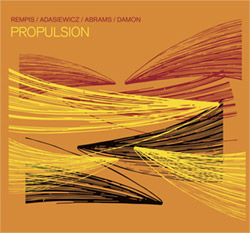

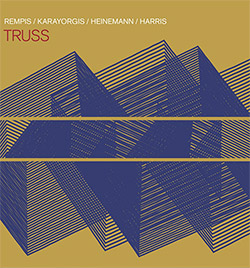
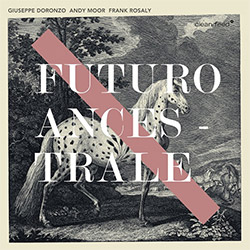


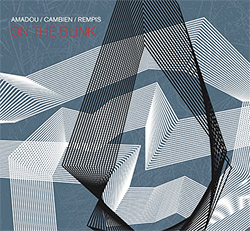
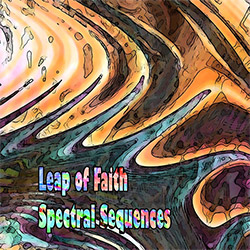


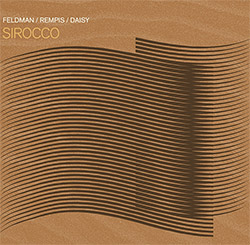
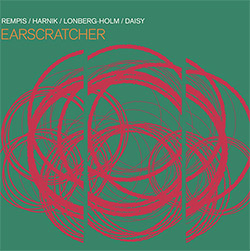
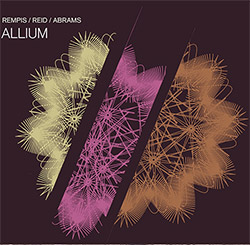
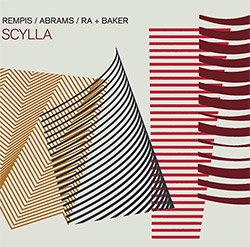

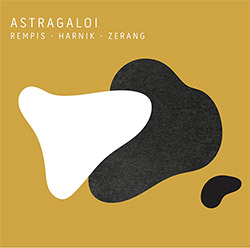






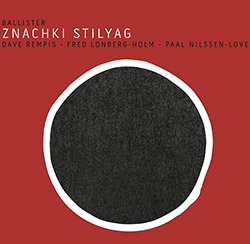
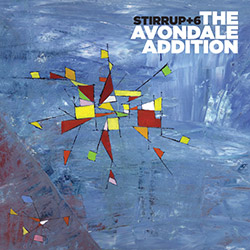
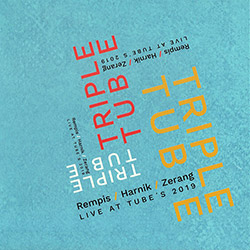










![Deupree, Jerome / Sylvie Courvoisier / Lester St. Louis / Joe Morris: Canyon [2 CDs]](https://www.teuthida.com/productImages/misc4/36404.jpg)


![Eternities: Rides Again [CASSETTE]](https://www.teuthida.com/productImages/misc4/36247.jpg)

![Lopez, Francisco: Untitled (2021-2022) [2 CDs]](https://www.teuthida.com/productImages/misc4/36438.jpg)




![Eventless Plot | Haarvol: The Subliminal Paths [CASSETTE + DOWNLOAD]](https://www.teuthida.com/productImages/misc4/36232.jpg)












![Eventless Plot | Francesco Covarino: Methexis [CASSETTE + DOWNLOAD]](https://www.teuthida.com/productImages/misc4/36231.jpg)



![Das B (Mazen Kerbaj / Mike Majkowski / Magda Mayas / Tony Buck): Love [VINYL]](https://www.teuthida.com/productImages/misc4/36329.jpg)



![Hemphill Stringtet, The: Plays the Music of Julius Hemphill [VINYL]](https://www.teuthida.com/productImages/misc4/36409.jpg)



![Halvorson, Mary Septet: Illusionary Sea [2 LPS]](https://www.teuthida.com/productImages/misc4/17952.jpg)






![Money : Money 2 [2 CDs]](https://www.teuthida.com/productImages/misc4/35894.jpg)




![Klinga, Erik: Elusive Shimmer [VINYL]](https://www.teuthida.com/productImages/misc4/36258.jpg)
![CHANGES TO blind (Phil Zampino): Volume 9 - I Wave on a Fine Vile Mist [CD + DOWNLOAD]](https://www.teuthida.com/productImages/misc4/36061.jpg)

![Wallmart / Rubbish: Asset Protection [split CD]](https://www.teuthida.com/productImages/misc4/35900.jpg)


![+Dog+: The Family Music Book Vol. 5 [2 CDs]](https://www.teuthida.com/productImages/misc4/35897.jpg)
![Kuvveti, Deli : Kuslar Soyledi [CASSETTE w/ DOWNLOAD]](https://www.teuthida.com/productImages/misc4/36107.jpg)

![Nakayama, Tetsuya: Edo Wan [CASSETTE w/ DOWNLOAD]](https://www.teuthida.com/productImages/misc4/36105.jpg)




![Yiyuan, Liang / Li Daiguo: Sonic Talismans [VINYL]](https://www.teuthida.com/productImages/misc4/35957.jpg)
![Brown, Dan / Dan Reynolds: Live At The Grange Hall [unauthorized][CASSETTE]](https://www.teuthida.com/productImages/misc4/36245.jpg)








![Palestine, Charlemagne / Seppe Gebruers: Beyondddddd The Notessssss [VINYL]](https://www.teuthida.com/productImages/misc4/36206.jpg)
![Palestine, Charlemagne / Seppe Gebruers: Beyondddddd The Notessssss [NEON GREEN VINYL]](https://www.teuthida.com/productImages/misc4/36207.jpg)

![Laubrock, Ingrid: Purposing The Air [2 CDs]](https://www.teuthida.com/productImages/misc4/35639.jpg)

![Yoko, Ono / The Great Learning Orchestra: Selected Recordings From Grapefruit [2 CDs]](https://www.teuthida.com/productImages/misc4/35841.jpg)









![Zorn, John / JACK Quartet: The Complete String Quartets [2 CDs]](https://www.teuthida.com/productImages/misc4/35609.jpg)

![Lonsdale, Eden: Dawnings [2 CDs]](https://www.teuthida.com/productImages/misc4/35480.jpg)



![Sorry For Laughing (G. Whitlow / M. Bates / Dave-Id / E. Ka-Spel): Rain Flowers [2 CDS]](https://www.teuthida.com/productImages/misc4/35985.jpg)

![Rolando, Tommaso / Andy Moor : Biscotti [CASSETTE w/ DOWNLOADS]](https://www.teuthida.com/productImages/misc4/36106.jpg)


![Electric Bird Noise / Derek Roddy: 8-10-22 [CD EP]](https://www.teuthida.com/productImages/misc4/35970.jpg)








![Elephant9 : Mythical River [VINYL]](https://www.teuthida.com/productImages/misc4/34624.jpg)



![Elephant9 with Terje Rypdal: Catching Fire [VINYL 2 LPs]](https://www.teuthida.com/productImages/misc4/35355.jpg)
![Deerlady (Obomsawin, Mali / Magdalena Abrego): Greatest Hits [VINYL]](https://www.teuthida.com/productImages/misc4/34876.jpg)







![Surplus 1980: Illusion of Consistency [CD]](https://www.teuthida.com/productImages/misc4/35069.jpg)
![Staiano, Moe: Away Towards the Light [VINYL + DOWNLOAD]](https://www.teuthida.com/productImages/misc4/35037.jpg)
![Coley, Byron: Dating Tips for Touring Bands [VINYL]](https://www.teuthida.com/productImages/misc4/17906.jpg)

![Lost Kisses: My Life is Sad & Funny [DVD]](https://www.teuthida.com/productImages/misc4/lostKissesDVD.jpg)